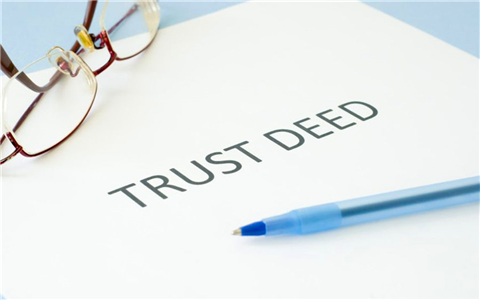
发布时间:2019-11-14
《传承宝典》28
独立的财富管理 & 受托人的作用 (上篇)
理查德-菲兹兰-霍华德
英国伦敦Stonehage Fleming集团合伙人-投资总裁
理查德是伦敦Stonehage Fleming家族办公室的投资管理公司总裁。作为一名投资分析师和基金经理,他在伦敦和纽约的Flemings集团工作了25年。2000年,他被邀请创建Fleming Family & Partners的资产管理部门,并成为了该FF&P资产管理有限公司的CEO和总裁理查德在牛津大学基督圣体学院研读历史。他是Gabelli Value Plus+ 信托公司的董事。他还是Dulverton信托基金、军事学院信托基金和圣约翰关怀信托基金的董事;以及牛津大学基督圣体学院和马耳他主权军事教团信托基金投资委员会的成员一个先决条件是——受托人必须在所有方面都独立,并且只根据受益人在信托契约中所确定的目标之需要来行事。 当然,“独立性”是金融服务中常用的一个词,用来界定顾问与客户之间的关系,各种监管制度旨在确保顾问不偏袒自己的利益。对于受托人来说,独立还有一个额外的、至关重要的方面,即独立于所有信托受益人之间,不允许自己受到一个或多个家族成员的过度影响,从而损害他人的利益。

一. 受托人的责任

更有争议的是,负责家族企业的受托人可能不得不在继续拥有该企业与考虑分散单一业务风险的责任之间进行调和。这意味着需要对企业进行持续的监控,并拥有知识、技能和勇气来提议进行重大审查,而这种审查很可能不受家族领导者的欢迎。这同样适用于其他资产,比如:直接投资、房地产和艺术品。受托人可以随时咨询专家的意见,但他需要拥有基本的理解和经验才能知道何时需要这样的建议。他需要找到合适的专家并向他们汇报情况,并在做出决定时正确地使用这些建议,这通常出现在与客户的家族成员进行讨论或谈判之时。作为一个“谨慎的商人”,受托人需要具备多少知识才能履行这些职责?他或她如何运用这些知识?在他具备专业知识的情况下,他应该让外部顾问凌驾于自己的观点之上,还是应该在做出决定时只参考这些建议?

一些较大的信托公司认识到需要投资方面的专门知识,因此设立了专门的部门,以帮助作出资产配置方面的决定,并帮助挑选和监测最好的第三方投资管理公司。有些公司甚至聘用专家,在直接投资和企业交易、房地产和艺术品管理方面为客户提供支持。许多受托人也拥有重量级的内部法律专家团队。问题是在哪里划定出界限、以及在什么样的情况之下:对于受托人的独立性而言,必要的建议外包给第三方将是至关重要的,即便所适用的专业知识已存在于其内部?

二. 决定是否外包的关键因素
无论出于何种目的,在决定是否需要外部咨询时,信托受益人的利益是至高无上的。以下的清单可能会有所帮助:
1. 受托人是否真的拥有“内部”的独立专家,来为决策做出贡献?能否证明他与外部专家相比之高下?
2. 与其他外部顾问相比,对更广阔视角的理解是否让他们处于更有利的地位?
3. 便利性、成本效率或隐私等问题是否重要到足以在此成为一项因素?
4. 如果信托财产委托人和受益人,对于受托人比对于外部顾问或资产管理公司更有信心,那么其与委托人和受益人之间深厚和可信赖的关系是一项合理的因素吗?
5. 委托人和受益人的意见是否应在其他方面加以考虑?如果是,为什么——例如若是家族在某一特定领域已拥有专门知识的行家团队?
6. 就风险和可能导致结果的范围而言,决策的实质重要性是什么?


在理论上,例如:外包管理短期政府债券投资组合,甚至蓝筹股票(特别是如果他们所跟踪的指数相当密切)的需求,远不如外包管理对冲基金或私人股本投资组的需求来得强大,因为后者更多取决于经理人的判断和技能。同样,与使用特定的内部投资基金或产品相比,将资产配置和经理人的选择留在公司内部更容易找到理由。
English Version
Richard is Chairman of Stonehage Fleming Investment Management in London. Following 25 years with Flemings in London and New York as an investment analyst and fund manager, he was invited to set up the asset management arm of Fleming Family & Partners in 2000, becoming CEO and subsequently Chairman of FF&P Asset Management Limited.
Richard read History at Corpus Christi, Oxford. He is a Director of Gabelli Value Plus+ Trust plc. He is also a Director of The Dulverton Trust, The College of Arms Trust and the Orders of St John Care Trust; and a member of the Investment Committees of Corpus Christi College, Oxford, The Sovereign Military Order of Malta, and The Dulverton Trust.
It is therefore a prerequisite that the trustee must be independent in all respects and act only in accordance with the needs of beneficiaries, with regard to the objectives defined in the trust deed.
‘Independence’, of course is a word commonly used in financial services to help define the relationship between adviser and client, with various regulatory regimes designed to ensure the adviser does not prefer his own interests. For a trustee, there is an extra and vital dimension to independence, which means being independent between all trust beneficiaries, not allowing himself or herself to be excessively influenced by one or more family members, at the expense of others.
1. RESPONSIBILITY OF TRUSTEES
The duty of a trustee is to act as a ‘prudent man of business’ in managing assets on behalf of beneficiaries. This applies, of course, not merely to investment portfolios, but to all assets held in trust, such as family businesses, directly held investments and ventures, property, art, leisure assets and many others.
He must exercise his responsibilities in accordance with the terms of the relevant trust deed, having regard to the interests of all the beneficiaries. Indeed he may often have to balance the conflicting interests of different beneficiaries and to reconcile sharply differing views. It goes without saying that trusteeship can demand an exceptionally broad range of knowledge, experience and skills, in order to make the right decisions, whilst maintaining family harmony.
The prudent man of business will seek advice where required, but will take the ultimate decision as required by the trust deed. The question hence arises as to how much expertise a trustee needs in respect of the assets under their control, how they use that expertise and how they get paid for it.
Nearly all trustees, for example, have some understanding of investments, which they use to select and brief external advisers and to interpret and act upon their recommendations. Indeed it is very clear that even where investment management is fully outsourced, key investment decisions, especially asset allocation, are strongly influenced by the views of the trustees and rightly so. It is entirely possible that the influence of the trustees will have far more impact on the investment performance and risks than decisions taken by the professional investment managers.
More controversially, the trustee responsible for a family business may have to reconcile the continuing ownership of that business with the duty to consider the case for diversifying the risk of a single line holding. It implies a need for continual monitoring of the business and having the knowledge, skill and courage to call for a major review which may well be highly unpopular with family leaders.
The same applies to other assets, such as direct investments, property and art. The trustee can always call in specialist advice, but needs the basic understanding and experience to know when such advice is needed. He needs to find and brief the right specialists, and to use the advice correctly in coming to a decision, often in discussion and perhaps negotiation with the client family members.
Just how knowledgeable does a trustee need to be to discharge these responsibilities, as a ‘prudent man of business’ and how does he or she apply that knowledge? Where he has expertise, should he allow his own views to be overridden by external advisers, or should he merely take account of such advice in reaching a decision?
Recognizing the need for investment expertise, some larger trust companies have established specialist units to help with asset allocation decisions and to help select and monitor the best third party investment managers. Some have gone even further in hiring specialists to support clients in direct investment and corporate transactions, in property and art management. Many trustees also have significant in-house legal expertise.
The question is where to draw the line and at what point is it essential for trustee independence that the advice required is outsourced to a third party, even if suitable expertise exists in-house?
2. KEY FACTORS IN DECIDING WHETHER TO OUTSOURCE
The assumption must be that, in deciding whether external advice is required, for whatever purpose, the interests of the trust beneficiaries will be paramount. The following check list may be helpful:
1.Do the trustees genuinely have independent expertise ‘in-house’ to contribute to the decision and can it be demonstrated that it compares with external specialists?
2.Does understanding of the wider perspective put them in a better position than other external advisers?
3.Are issues of convenience, cost efficiency or privacy sufficiently important to be a factor?
4.Is a deep and trusting relationship with the trust settlor and beneficiaries a legitimate factor, if they have more confidence in their trustees than an external adviser or asset manager?
5.Are there other respects in which the views of the settlor and beneficiaries should be considered and if so why – for example if the family has expertise in a particular field?
6.What is the materiality of the decision in terms of risk and range of possible outcomes?
In theory, for example, the case for outsourcing management of an investment portfolio of short-term government bonds, or even of blue chip equities (especially if they track the indices quite closely) is much less powerful than the case for outsourcing the management of a portfolio of hedge funds or private equity, where so much more depends on the judgment and skill of the manager. Equally, it is much easier to justify keeping asset allocation and manager selection in-house, than using specific in-house investment funds or products.
该文章转载自雷梭勒家族办公室,如有侵权,敬请告知删除。
Sooswiss为您提供
瑞士方向私人管家式的定制服务:
1)家族传承 2)财富管理 3)瑞士投资
4)居留计划 5)税务优化 6)家族治理
更多资讯请登录网站 www.sooswiss.com
